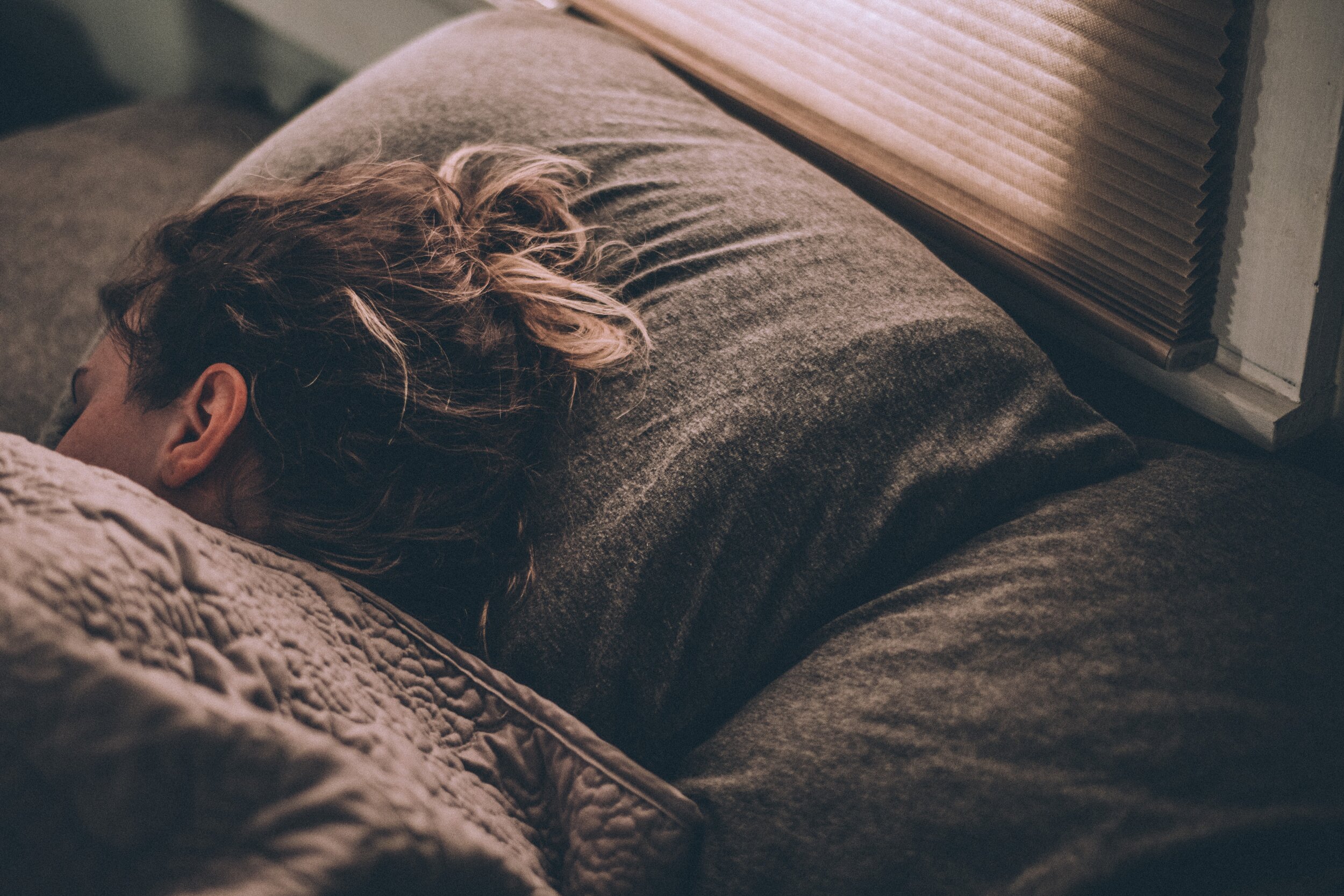We know sleep is good for us. And many of us LOVE to sleep as well. At some point, you’ve been told the importance of maintaining 7-8 hours of sleep per night, however what if you struggle with this?
The benefits of getting enough sleep HUGE! Increased energy and concentration, improved mood, and cognitive impairments are among some of the emotional wellness benefits. Additionally, there are many physical health benefits, including boosting your immunity, maintaining physical health such as a healthy weight, and reducing risk of chronic conditions such as high blood pressure and diabetes. With May being Better Sleep Month, we wanted to give you a few tips on maximizing your sleep, to ensure you’re benefiting both your physical and mental health.
So what are some of the strategies to improve your sleep? Below are a few options:
-
Take Time to Set-Up Your Optimal Sleep Space
Having a space where you feel calm and relaxed, will support optimal sleep. Here are a few considerations when setting up or reinventing your sleep space:
-
Aim for a cool space, research varies around 60-70 degrees Fahrenheit. Our bodies tend to warm up during sleep, so if your room is too hot, you may wake up, impacting sleep quality
-
Remove the technology as your phone, computer, tablet, and others offer distractions from sleep, and blue light can also disturb your sleep quality.
-
Make your space comfy. Again, you want to feel relaxed and calm. Have your favorite scents in the room; grab some comfy pillows. When creating a quality sleep space, ask yourself whether this space feels welcoming to you.
-
Check your pillows and sheets. Soft sheets and comfy pillows create a more optimal sleep environment. Pillows should be replaced about every year and as you replace them, ensure they support your neck and spine, which will further support quality sleep.
-
Reduce noise and light. Try blackout curtains or a sleep mask as light can disrupt your sleep cycle. Sounds can also disturb sleep so try soft music or earplugs.
2. Create a Routine
Develop a sleep routine before bed which improves sleep quality.
-
Schedule a time for you to turn technology off and engage in a routine of getting yourself ready for sleep.
-
Aim for the same steps in your nightly routine each night, to signal your body you are getting ready for sleep. This might include a skincare routine, putting on pajamas, meditating, listening to music. No matter what your routine includes, make sure you stick to it and set steps that help to calm and relax you. Again, this tells your body you are getting ready for bed.
3. Review Your Menu
Eating before bedtime can be a challenge, so review the foods you are eating and the times you are eating them.
-
Alcohol also inhibits quality sleep.
-
Foods high in sugar and acidity, as well as caffeinated beverages and difficult to digest foods impact sleep as they do not allow for the relaxation needed prior to bedtime.
4. Relax!
Try some relaxation techniques, whether this be mindfulness strategies, listening to a meditation, listening to music, or using aromatherapy. In order to fall asleep, we need to relax both our minds and our bodies.
-
Try doing some yoga before bed. There are even yoga styles that focus on relaxing the body before bedtime
-
Listen to a nighttime meditation; there are many options online that can lead to restful sleep.
5. Check Your Mattress
Your mattress may actually impact your sleep. If a mattress is too old, it can lead to discomfort, causing aches and pains, leading to sleep that is not consistent or restful.
-
Check the condition of your mattress. If it has lumps in it, is worn or torn, and have experienced a better night’s sleep staying at another person’s home or on vacation, it’s time to consider a new mattress.
-
The average mattress lifespan is about five to seven years. Take time to check your last mattress change and see if it’s time to consider a new option to support a better night’s sleep.
We know the benefits of sleep are plenty. With Better Sleep Month raising awareness of the ongoing importance of consistent sleep, why not test out a few of these strategies this month.
Let us know what your optimal sleep routine and room look like. If you are in need of further support improving your sleep, or developing a routine that works for you, click here.

